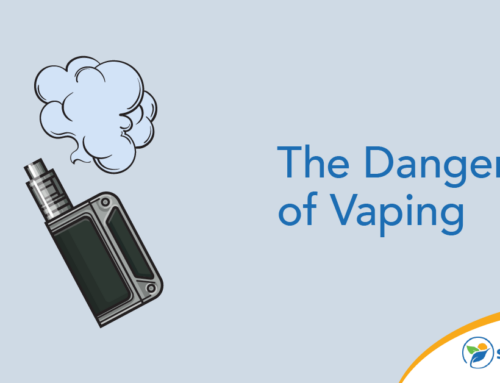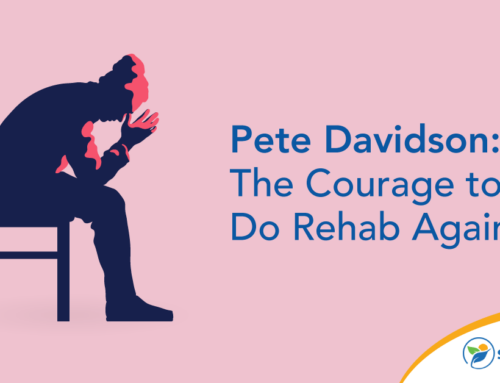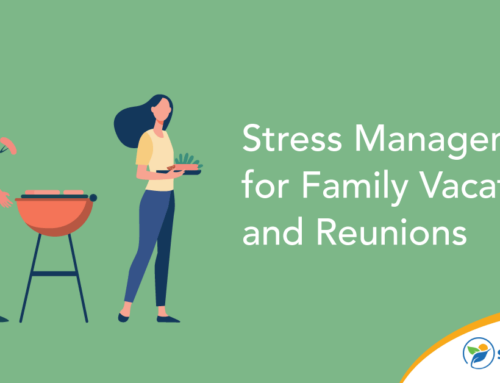Addiction is a chronic brain disease that, like many other diseases, slowly appears over a long period of time. Often times, a substance that a person initially casually enjoys using becomes something that they are not able to live without and the addiction appears. This then turns into a constant cycle of addiction, treatment, sobriety and then relapsing and starting the cycle all over again.
Overcoming an addiction is very possible, but during treatments like inpatient care there is still a high probability of relapsing. This is what makes addiction such a scary thing. Just because someone beats it does not mean they will forever stay in the abstinent stage of the cycle.
What is Relapse?
Because an individual struggling with addiction uses so often, their brains are chemically affected. They begin to lose a portion of their self-control when it comes to resisting the temptation of the substance they are addicted to. As a result, a person in the recovery process is not only relearning how to live life without the substance they’ve abused but also how to simply avoid the urge to use it.
This is where relapse kicks in. Relapsing means that they have started using once again after the partial or full completion of their treatment is over. In more instances than not, relapsing happens more than once before actually obtaining sobriety for the individual. This is due to the fact that every person going through recovery reacts differently to treatments and the detox of their abused substance.
What is the Likelihood of Relapsing?
According to research, about 2/3 of individuals who have received and successfully finish drug addiction treatment relapse within the year they completed it. Once a year of sobriety is completed, about only half will remain abstinent in their drug use and avoid relapsing. The number drops down to 15% of chance of relapsing once five years of sobriety is achieved.
This can make wanting to go through treatment feel pointless and like it won’t make a difference. It is important to remember though that there are people who have been able to stay clean and sober for decades at a time after overcoming their addiction. Although the probability is high for relapsing, it is possible for someone to conquer his or her addiction for a lifetime.
Relapse Triggers and How to Avoid Them
Relapse triggers typically fall into one of three categories: emotional, environmental or exposure. These can be caused by a specific event that someone goes through or a relationship or interaction with a person. Every trigger differs for each person, as well.
As far as the emotional triggers, these can be that of negative thoughts and feelings towards someone close to the recovering addict or even towards themselves. Even positive feelings can make them relapse because it reminds them of how the substance made them feel when they were using. Environmental triggers can include sudden changes in routine and loss of sleep that fatigue the recovering addict.
The most influential types of triggers are those of exposure. This could be when an addict hangs out with friends they in the past used with or revisiting a place they used to commonly use at. Exposure also includes that of watching someone else use or just being around objects used for drugs and alcohol.
Does Relapsing Equal Failure?
Although it may feel like it, relapsing 100% does NOT equal failure. Every single person’s brain is wired differently, and the use of drugs and alcohol affects everyone differently. There will be some who can overcome their addiction on the first try while it will take others ten tries.
This is nothing to be ashamed about. Yes, using alcohol and drugs is a choice but becoming addicted to them is not. The only thing to possibly change the cycle of addiction is to keep trying to break it. If you view relapsing as a failure, it will only make it harder to keep striving to change.
How to Spot Signs of Relapse
It is important for ones closest to recovering addicts to stay aware of the signs of relapse before they become a serious issue. It is proven that there is a high risk of accidental overdose during a relapse, which is why it is so important to be aware of when someone is showing signs of relapsing.
Here are some warning signs someone who might be getting ready to or is already in the middle of relapsing might show:
- Romanticizing of drugs or alcohol. This is when the recovering addict speaks positively about the times they were using and may even hint at the fact that they are wishing to start using again for this reason.
- Reactivation of denial. This can be when a recovering addict thinks that they could start using again without becoming addicted. It gives them a false sense of how the drugs or alcohol truly affected them instead of the reality.
- Behavioral changes.Any time a recovering addict has mood swings or sudden changes in behavior, it usually means they are on the brink of a relapse. This can happen because their bodies and minds are still adjusting to life without the substance they were abusing.
- Elevated Stress. Warning signs of this can be overreacting to situations that wouldn’t normally be stressful. A person going through recovery can see every day activities as overly stressful, but it only becomes a warning sign if they cannot eventually overcome this.
Information on Relapse Prevention
Signs of relapse are something that need to be taken very seriously when someone you know or you yourself is going through the addiction recovery process. Our team at Sunlight Recovery offers many substance abuse and mental health programs that will get you on the right track towards full recovery as well as teaching you many valuable techniques in order to avoid relapse.
Please contact us today if you or a loved one is going through the recovery process and showing signs of relapsing, and you need help on what to do to prevent this from happening.








Leave A Comment